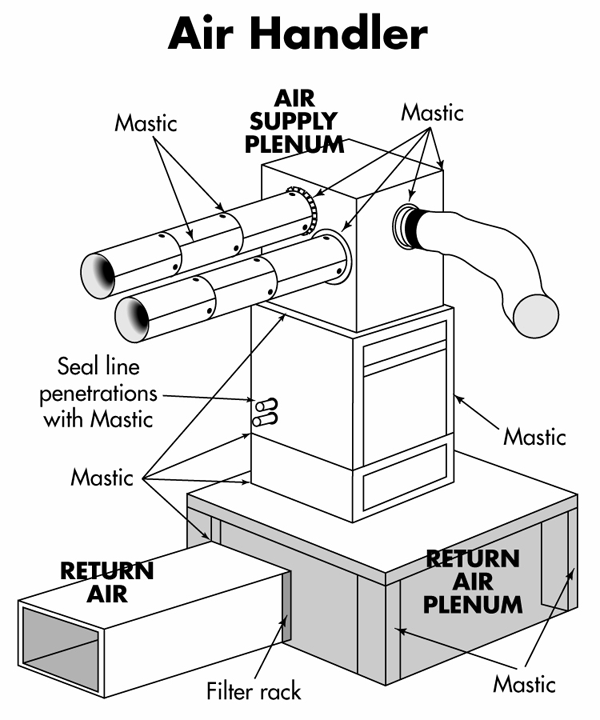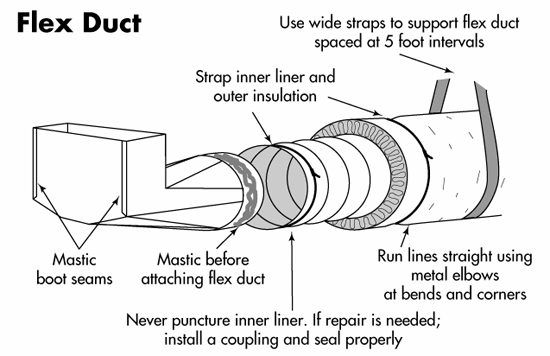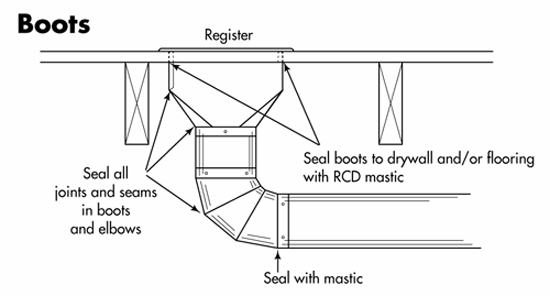Air Duct Sealing Tips
Heating and Cooling Air Duct Repairs
Q. Why is sealing air ducts important?
A. An average home with leaking air ducts will waste hundreds of dollars each year. This waste is unnecessary and can be easily solved. Health and safety is the most important reason to seal air ducts properly. Air ducts are usually located in attics, crawl spaces, or basements. Air handling units are often located in the home’s garage. If the return air plenum leaks, air is drawn from these areas directly into the home. This air is often contaminated with automobile exhaust, combustible gases, pesticides, fertilizer, mold, excess humidity, and even radon.
Q. How do duct leaks affect heating and cooling equipment?
A. Air duct leakage of 20% will lower the efficiency of the heating/cooling system by 50% or more. These leaks lower heating and cooling capacity, which forces the system to run longer, reducing its lifespan. Many indoor comfort complaints are due to poor air duct installation and sealing.

Q. Why is duct leakage so common?
A. Many connections are not sealed during the construction process. Many times air ducts are not installed with the proper support and over time the joints pull apart. RCD Mastics are the preferred method for sealing air ducts.
Q. What are the most important areas to seal?
A. Seal in this order:
1. Disconnected & damaged components.
2. Air handling unit to plenum connections.
3. All joints & seams throughout the forced air system.

Q. Do building and energy codes address duct leakage?
A. Yes, all building and energy codes require the sealing of air ducts. “Duct tape” is no longer permitted as a sealant on any duct.
Q. Why use RCD Mastics?
A. Studies have shown tapes are not a permanent seal and will eventually fail. RCD Corporation® Mastics are specifically formulated to permanently seal all types of ductwork.

Q. If the ducts are insulated, do they need to be sealed?
A. Yes. Insulation does not stop air leaks.
